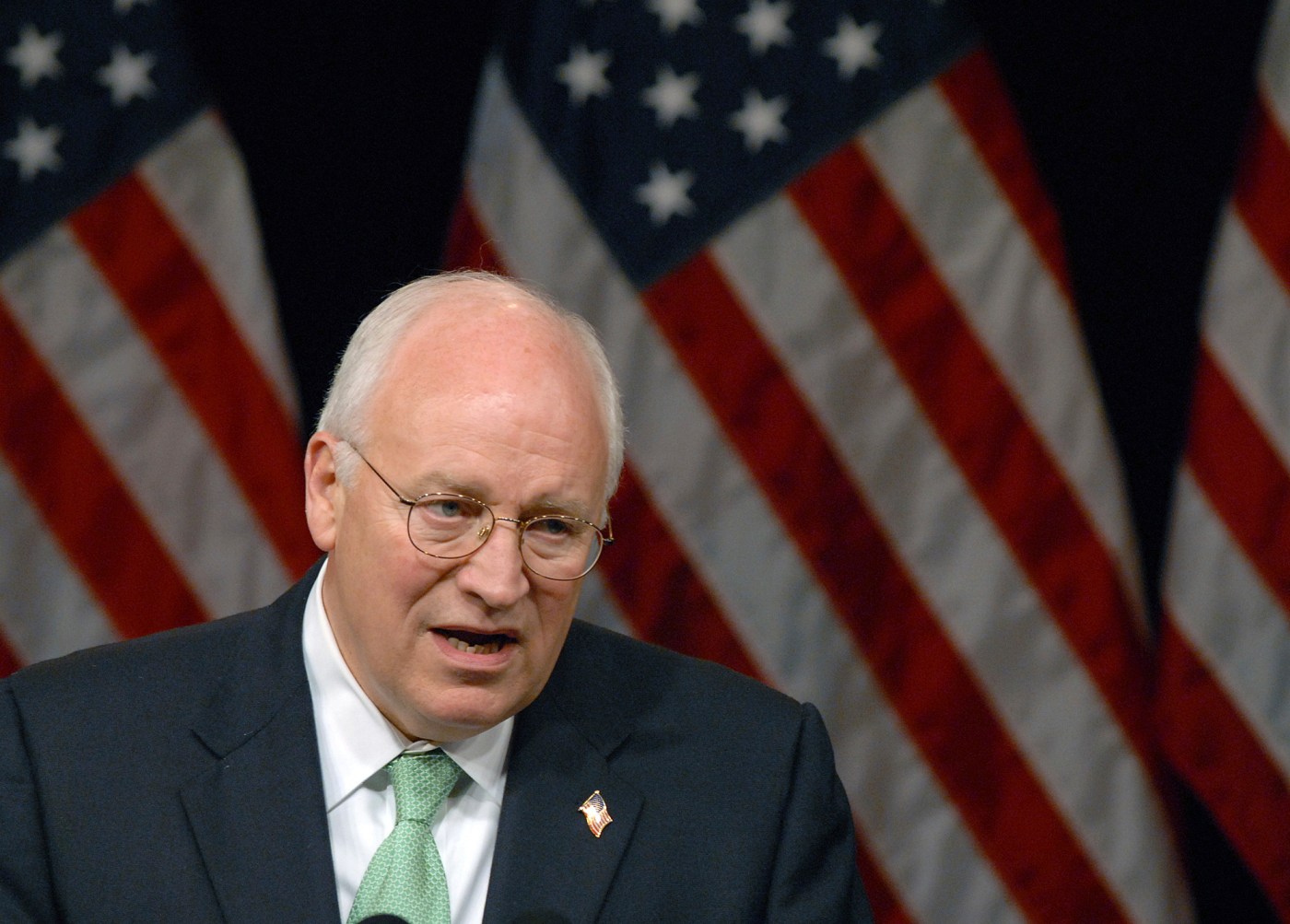Politics
Former Vice President Dick Cheney Passes Away at 84

Dick Cheney, the influential and often controversial figure who served as Vice President of the United States under both George H.W. Bush and his son, George W. Bush, has died at the age of 84. Known for his decisive role in the U.S. invasion of Iraq and his extensive influence within the Bush administration, Cheney’s passing marks the end of an era in American politics.
Cheney’s career spanned decades, beginning in the late 1960s when he first arrived in Washington as a congressional fellow. He quickly became a close ally of then-Secretary of Defense Donald Rumsfeld and later served as Chief of Staff in Gerald Ford‘s White House. His political ascent continued when he was elected to the House of Representatives from Wyoming, where he served for six terms.
Political Legacy and Influence
As Vice President, Cheney was not merely a ceremonial figure. He played a crucial role in shaping U.S. policy on issues such as national security, energy, and foreign relations. During the aftermath of the September 11, 2001, terrorist attacks, he defended controversial measures including enhanced surveillance and interrogation practices. Cheney was often described as the “chief operating officer” of the Bush presidency, wielding significant power and influence over key decisions.
His advocacy for the invasion of Iraq in 2003, based on claims of weapons of mass destruction and links to terrorist organizations, has been intensely scrutinized. Despite facing criticism for the war’s outcome, Cheney remained steadfast in his beliefs, famously asserting that U.S. troops would be welcomed as liberators, a prediction that did not materialize.
Cheney’s close relationship with President Bush was characterized by a unique understanding of their roles; Cheney set aside any ambitions for the presidency to support Bush’s agenda. In a revealing statement, he noted, “I made the decision when I signed on with the president that the only agenda I would have would be his agenda.”
Personal Struggles and Later Years
Throughout his public life, Cheney battled serious health issues, including multiple heart attacks and a heart transplant. He often expressed gratitude for each day, despite his reputation as a tough and secretive political operator. In 2013, he remarked, “I now wake each morning with a smile on my face, thankful for the gift of another day.”
After leaving office, Cheney remained a significant figure in the Republican Party, especially as his daughter, Liz Cheney, became a prominent critic of former President Donald Trump. In a television advertisement supporting Liz’s re-election campaign, he stated, “In our nation’s 246-year history, there has never been an individual who was a greater threat to our republic than Donald Trump.”
In a surprising turn of events, Cheney indicated his support for Kamala Harris, the Democratic candidate, in the 2020 presidential election, showcasing his complex and evolving political views.
Cheney’s legacy is marked by his powerful presence in American politics, a figure who navigated both triumphs and controversies. He is survived by his wife, Lynne, and their two daughters, Liz and Mary. His death leaves a notable void in the landscape of U.S. political history, reflecting a time of significant change and challenge in the nation’s governance.
-

 Top Stories2 weeks ago
Top Stories2 weeks agoMarc Buoniconti’s Legacy: 40 Years Later, Lives Transformed
-

 Sports3 weeks ago
Sports3 weeks agoSteve Kerr Supports Jonathan Kuminga After Ejection in Preseason Game
-

 Entertainment3 weeks ago
Entertainment3 weeks agoZoe Saldana Advocates for James Cameron’s Avatar Documentary
-

 Business3 weeks ago
Business3 weeks agoTyler Technologies Set to Reveal Q3 2025 Earnings on October 22
-

 Science3 weeks ago
Science3 weeks agoChicago’s Viral ‘Rat Hole’ Likely Created by Squirrel, Study Reveals
-

 Politics3 weeks ago
Politics3 weeks agoDallin H. Oaks Assumes Leadership of Latter-day Saints Church
-

 Lifestyle3 weeks ago
Lifestyle3 weeks agoKelsea Ballerini Launches ‘Burn the Baggage’ Candle with Ranger Station
-

 Lifestyle3 weeks ago
Lifestyle3 weeks agoDua Lipa Celebrates Passing GCSE Spanish During World Tour
-

 Health3 weeks ago
Health3 weeks agoCommunity Unites for Seventh Annual Mental Health Awareness Walk
-

 Health3 weeks ago
Health3 weeks agoRichard Feldman Urges Ban on Menthol in Cigarettes and Vapes
-

 Business3 weeks ago
Business3 weeks agoMLB Qualifying Offer Jumps to $22.02 Million for 2024
-

 Sports3 weeks ago
Sports3 weeks agoPatriots Dominate Picks as Raiders Fall in Season Opener









